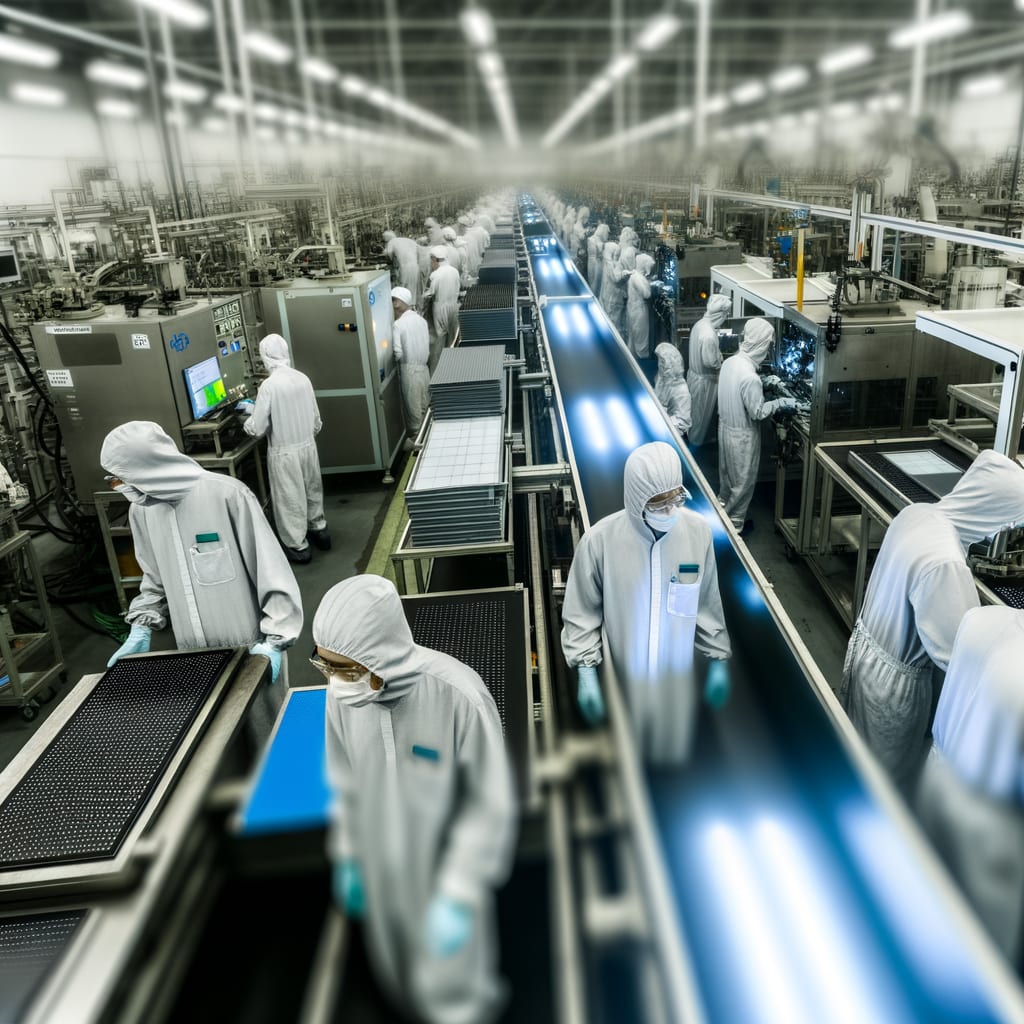Trump's Tariff Tensions and Tech Triumphs: Taiwan, Intel, and Apple in the Crossfire
In a turbulent turn of events, the global chip manufacturing industry faces mounting pressure due to an unprecedented tech leak from Taiwan Semiconductor Manufacturing Co (TSMC) and US President Donald Trump's escalating trade demands. The President's strategies, including a proposed 100% tariff on chip imports and a $300 billion investment demand from TSMC, along with his call for Intel's CEO resignation, are causing ripples across the globe.
The Escalating US-China Tech War
Taiwan, home to TSMC, the world's top contract chipmaker, is bearing the brunt of the tensions. Following a significant tech leak, the country faces a potential threat to its global chipmaking status. Moreover, new US pressures, including a 20% tariff and no trade deal, are straining Taiwan’s export manufacturers, intensifying the political uncertainty in the region.
Simultaneously, President Trump's trade strategy appears to be pressuring other nations to make financial pledges or face higher tariffs, as reported by the New York Times. Trump's demand for a $300 billion investment from TSMC, in exchange for better tariff terms, is a part of this approach.
Impact on Intel and China
Meanwhile, the US's domestic chip industry is also in turmoil. The President has called for Intel's CEO, Lip-Bu Tan, to resign over reported Chinese investments. Tan disputed these allegations and defended his commitment to the company, criticizing the 'misinformation' about his career.
However, this attack adds to Intel's ongoing challenges. As the BBC News suggests, the firm has been seen as falling behind in the chip race, and the recent events could compound its factory struggles.
On the Chinese front, Semiconductor Manufacturing International Corp (SMIC), mainland China's largest contract chipmaker, downplayed the potential impact of the proposed 100% tariff on imported chips, citing an overall demand exceeding supply.
Promising Developments
Despite the escalating tensions, there have been some positive developments. The Folha de S.Paulo reports that Apple CEO Tim Cook has pledged to invest $600 billion in the US over the next four years, promising to foster an American 'end-to-end' supply chain for chips.
Moreover, the US is working to strengthen its sources and production of rare earth elements, which are crucial for everything from consumer electronics to electric vehicles and fighter jets.
Conclusion
In conclusion, the chip manufacturing industry is navigating through a period of significant geopolitical pressure and uncertainty. While the repercussions of these developments are yet to be fully realized, the advancements by Apple and efforts toward domestic production of rare earths hint at potential shifts in the global tech landscape.

